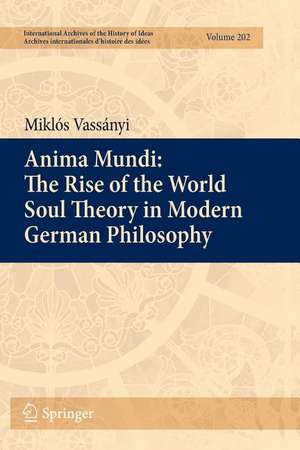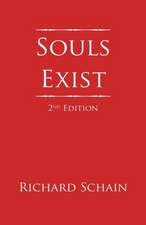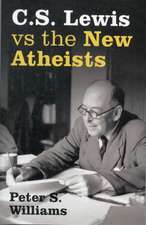Anima Mundi: The Rise of the World Soul Theory in Modern German Philosophy: International Archives of the History of Ideas Archives internationales d'histoire des idées, cartea 202
Autor Miklós Vassányien Limba Engleză Paperback – 2 ian 2013
| Toate formatele și edițiile | Preț | Express |
|---|---|---|
| Paperback (1) | 1115.14 lei 43-57 zile | |
| SPRINGER NETHERLANDS – 2 ian 2013 | 1115.14 lei 43-57 zile | |
| Hardback (1) | 1121.43 lei 43-57 zile | |
| SPRINGER NETHERLANDS – 30 noi 2010 | 1121.43 lei 43-57 zile |
Din seria International Archives of the History of Ideas Archives internationales d'histoire des idées
- 24%
 Preț: 679.97 lei
Preț: 679.97 lei - 18%
 Preț: 728.43 lei
Preț: 728.43 lei -
 Preț: 380.25 lei
Preț: 380.25 lei -
 Preț: 382.18 lei
Preț: 382.18 lei -
 Preț: 382.36 lei
Preț: 382.36 lei -
 Preț: 385.84 lei
Preț: 385.84 lei -
 Preț: 381.43 lei
Preț: 381.43 lei -
 Preț: 380.45 lei
Preț: 380.45 lei - 18%
 Preț: 1218.35 lei
Preț: 1218.35 lei -
 Preț: 379.68 lei
Preț: 379.68 lei -
 Preț: 399.29 lei
Preț: 399.29 lei - 18%
 Preț: 950.03 lei
Preț: 950.03 lei -
 Preț: 385.08 lei
Preț: 385.08 lei - 18%
 Preț: 953.20 lei
Preț: 953.20 lei - 15%
 Preț: 648.24 lei
Preț: 648.24 lei - 15%
 Preț: 641.03 lei
Preț: 641.03 lei - 18%
 Preț: 954.93 lei
Preț: 954.93 lei - 18%
 Preț: 944.19 lei
Preț: 944.19 lei - 15%
 Preț: 643.00 lei
Preț: 643.00 lei - 18%
 Preț: 1825.40 lei
Preț: 1825.40 lei - 18%
 Preț: 1224.54 lei
Preț: 1224.54 lei - 15%
 Preț: 644.63 lei
Preț: 644.63 lei - 15%
 Preț: 633.53 lei
Preț: 633.53 lei - 15%
 Preț: 647.08 lei
Preț: 647.08 lei - 18%
 Preț: 1233.06 lei
Preț: 1233.06 lei -
 Preț: 390.25 lei
Preț: 390.25 lei - 18%
 Preț: 945.92 lei
Preț: 945.92 lei - 18%
 Preț: 951.91 lei
Preț: 951.91 lei - 18%
 Preț: 1219.63 lei
Preț: 1219.63 lei - 15%
 Preț: 638.24 lei
Preț: 638.24 lei - 18%
 Preț: 1223.43 lei
Preț: 1223.43 lei
Preț: 1115.14 lei
Preț vechi: 1359.93 lei
-18% Nou
Puncte Express: 1673
Preț estimativ în valută:
213.45€ • 231.93$ • 179.41£
213.45€ • 231.93$ • 179.41£
Carte tipărită la comandă
Livrare economică 21 aprilie-05 mai
Preluare comenzi: 021 569.72.76
Specificații
ISBN-13: 9789400734265
ISBN-10: 9400734263
Pagini: 452
Ilustrații: XV, 434 p.
Dimensiuni: 155 x 235 x 24 mm
Greutate: 0.63 kg
Ediția:2011
Editura: SPRINGER NETHERLANDS
Colecția Springer
Seria International Archives of the History of Ideas Archives internationales d'histoire des idées
Locul publicării:Dordrecht, Netherlands
ISBN-10: 9400734263
Pagini: 452
Ilustrații: XV, 434 p.
Dimensiuni: 155 x 235 x 24 mm
Greutate: 0.63 kg
Ediția:2011
Editura: SPRINGER NETHERLANDS
Colecția Springer
Seria International Archives of the History of Ideas Archives internationales d'histoire des idées
Locul publicării:Dordrecht, Netherlands
Public țintă
ResearchCuprins
Introduction.- Part I: Opposition to the identification of the World Soul with God in the philosophia Leibnitio-Wolffiana : The theory of God as the "ens extramundanum." - Chapter 1: Presentation of the texts relevant for the concept of an "anima mundi." The immediate natural theological setting of the problem.- Chapter 2: The distinctive philosophical content of the concept of an "anima mundi" in Leibniz and his followers. Arguments of this school against the theory of anima mundi. A broader natural philosophical and metaphysical discussion of their answer positions.- Part II: "Les naturalistes" – XVIIIth-century physico-theology : The scientific demonstration of the existence and attributes of God from the teleology of nature. The World Soul theory in physico-theology. Physico-theology as a source of inspiration for the Romantics.- Chapter 3: Preliminary historical and conceptual presentation of "l’histoire naturelle" in selected major works of some leading naturalists. The relation of natural science to theology or spirituality in their works.- Chapter 4: General philosophical analysis of physico-theology. Part III. Gradual rise of the concept of a World Soul in the ‘Lessingszeit’. Philosophical Cabbala, Spinozism and mysticism : Böhme & Ötinger; Spinoza, Lessing, and the Pantheismus-Streit; Giordano Bruno’s influence in the epoch.- Chapter 5. Böhme’s speculative theology (De signatura rerum, 1622). Ötinger’s Cabbalistic theory of the world as a glorious divine epiphany or shekhina & his problematic rejection of the concept of Weltseele (Offentliches Denckmahl der Lehr-tafel einer … Prinzessin Antonia, 1763).- Chapter 6: The philosophical incompatibility of Spinoza’s system with the World Soul theory. Bayle’s identification of Spinozism with the World Soul theory, and Wachter’s denial of the same. Lessing’s statement concerning the World Soul, and his alleged Spinozism in Jacobi’s Ueber die Lehre des Spinoza… (1785),Mendelssohn’s Morgenstunden… (1785), and Herder’s Gott. Einige Gespräche (1787). Herder’s rejection of the identification of God with the Weltseele..- Chapter 7: The World Soul in Giordano Bruno’s De la causa, principio et uno (1584) and De l’infinito, universo e mondi (1584). The revival of Bruno’s philosophy in late XVIIIth-early XIXth century German thought.- Part IV. The philosophical postulation of the World Soul in German Romanticism. Baader and Schelling.
Notă biografică
Miklós Vassányi (1966) earned Master’s and Doctor’s degrees in Philosophy at the Katholieke Universiteit Leuven, with a dissertation which forms the essence of this book. He is Associate Professor in Philosophy at Károli University of the Hungarian Reformed Church, Budapest.
Textul de pe ultima copertă
First affirmed by Plato, the concept of the world as a cosmic living being, possessed of a soul, gained great importance in the Stoic and Neo-Platonic philosophical schools. Several medieval philosophers displayed an interest in this theory of the world soul, which retained its attractive power even into the Renaissance. However, the leading early modern rationalists, especially Leibniz, found the world soul philosophically unacceptable. Why and how then did the German Romantics of the late 1700s and early 1800s – first and foremost Franz von Baader and Schelling – come resolutely to posit the existence of the world soul? In Anima Mundi: The Rise of the World Soul Theory in Modern German Philosophy , Miklós Vassányi shows that the metaphysical aspirations of the early German Romantics could not be satisfied by the Leibnizian concept of a God beyond the world. Powerful as Leibniz’s argument is when primarily the existence of God is considered, it fails to convincingly account for the presence of God within the world, and for the unity of the world. The fundamental existential experience of the Romantics was that God is immediately present in Nature, that God and Nature constitute an indissoluble Absolute. The best philosophical instrument to articulate their theory of the interpenetration of the Finite and the Infinite was a theory of the soul of the world.
Caracteristici
Important monograph on the (early) modern theory of the Soul of the World Examines the World Soul problematique in a broad metaphysical context Includes interdisciplinary discussion between metaphysics, theology, natural philosophy Covers non-mainstream intellectual traditions such as Cabbala, Hermetism Includes unpublished early modern manuscript material













